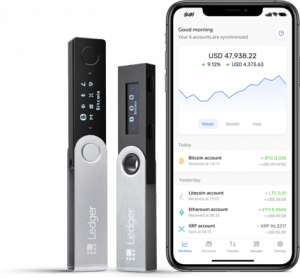What’s a wallet?
Before you can do anything in the crypto market, on any blockchain, you need a wallet.
Every participant of the ecosystem must have at least one, but it’s common for people to have a few, just as one can have a few different bank accounts and different financial instruments.
When you enter the Ethereum market, (which you will need to do to obtain YEdge Tokens), whether you are there to buy, sell, or use services – you need money and some form of ID. In the crypto space, your wallet is both (but does NOT necessarily reveal your actual ID beyond the crypto market). It’s like an online account, but with the important difference that you are the only person accessing and managing it.
For any interaction with the blockchain – sending or receiving money, playing a game, casting a vote or exchanging information – there are no email sign-ups or profile setups, much fewer logins with Facebook… Your point of entry, connection, and reconnection is always your wallet. Different blockchains will require different blockchain-specific wallets. We will focus on Ethereum wallets here as this is what will need to obtain YEdge Tokens.
Choosing a wallet
There are many varieties of wallets out there, and they fall into 5 general categories:
Web
Web-based wallets may also offer Chrome extensions, PWAs (progressive web apps) or browser-integrated variants.
Desktop
Desktop wallet are applications installed on the computer. While some consider these to be safer than web wallets, this is arguable: you still need to be online for transactions to go through, and a PWA from a web wallet can serve much the same purpose as a desktop app (namely, prevent you from going to a phishing site by accident). Besides, desktop apps may not be updated as frequently or reliably as websites and mobile apps, which can set them behind in terms of security features.
Hardware
Hardware wallets, used in combination with a web interface, are still the highest standard of security in crypto. They will keep your private keys from being exposed on the internet without the need for an offline computer.
Mobile
Depending on design and philosophy (custodial vs non-custodial), mobile wallet apps can vary in level of security and amount of control over your funds. However, with the world moving to mobile as the default way to use internet services, mobile app security is improving considerably and can have certain advantages over desktop and web wallets.
Paper
A method of ‘cold storage’ – wallets that are always kept offline. A paper wallet is a private-public key pair, or a mnemonic phrase, printed on a card and kept stored in a safe location, without ever accessing it online.
Choice of wallet depends a lot on individual needs and goals, but for your first wallet, try to avoid being impetuous or lazy. If someone dropped a chunk of gold in your lap and asked “How would you like to store this?”, you would probably say “I’d like your best, state-of-the-art, long-term security solution, please.” You wouldn’t say, “That shed over there seems ok, although I may have given my neighbour Joe a key at some point…”
Crypto may not be a chunk of gold yet, but you are putting in your own money into it, so choose the best security for your hard-earned cash right from the start.
It is generally recommended that you get a hardware wallet, and you can’t go wrong with Ledger, and also perhaps a ‘soft’ wallet, i.e. web/desktop/mobile. You can then transfer any crypto, tokens or assets between the 2. Check out the different wallets available at the Ethereum web site.
The principle of Do Your Own Research applies here, as it does – very strongly – in the rest of the crypto space.

